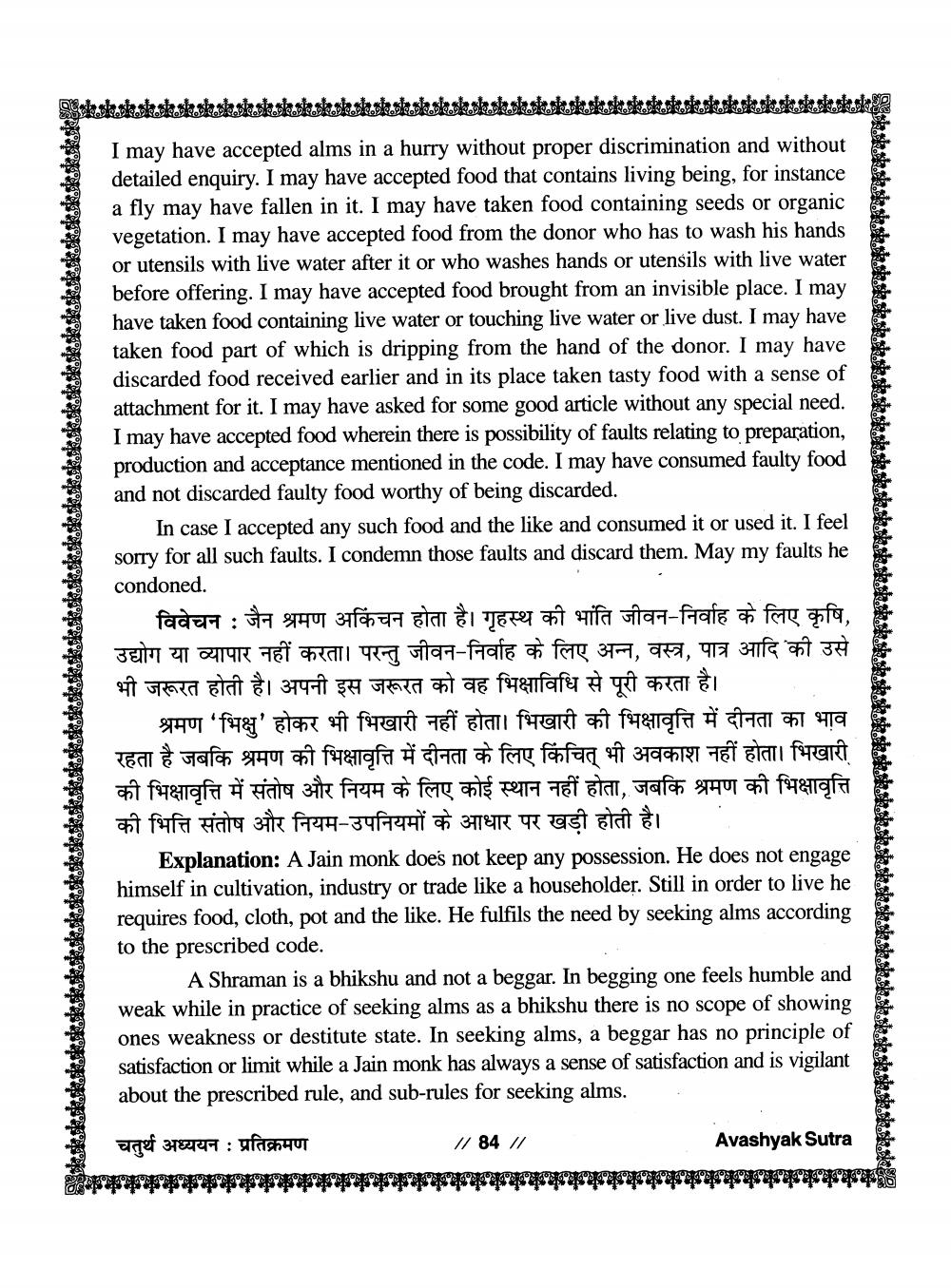________________
I may have accepted alms in a hurry without proper discrimination and without detailed enquiry. I may have accepted food that contains living being, for instance a fly may have fallen in it. I may have taken food containing seeds or organic vegetation. I may have accepted food from the donor who has to wash his hands or utensils with live water after it or who washes hands or utensils with live water before offering. I may have accepted food brought from an invisible place. I may have taken food containing live water or touching live water or live dust. I may have taken food part of which is dripping from the hand of the donor. I may have discarded food received earlier and in its place taken tasty food with a sense of attachment for it. I may have asked for some good article without any special need. I may have accepted food wherein there is possibility of faults relating to preparation, production and acceptance mentioned in the code. I may have consumed faulty food and not discarded faulty food worthy of being discarded.
In case I accepted any such food and the like and consumed it or used it. I feel sorry for all such faults. I condemn those faults and discard them. May my faults he condoned.
विवेचन : जैन श्रमण अकिंचन होता है। गृहस्थ की भांति जीवन निर्वाह के लिए कृषि, उद्योग या व्यापार नहीं करता । परन्तु जीवन - निर्वाह के लिए अन्न, वस्त्र, पात्र आदि की उसे भी जरूरत होती है। अपनी इस जरूरत को वह भिक्षाविधि से पूरी करता है।
श्रमण 'भिक्षु' होकर भी भिखारी नहीं होता। भिखारी की भिक्षावृत्ति में दीनता का भाव रहता है जबकि श्रमण की भिक्षावृत्ति में दीनता के लिए किंचित् भी अवकाश नहीं होता। भिखारी की भिक्षावृत्ति में संतोष और नियम के लिए कोई स्थान नहीं होता, जबकि श्रमण की भिक्षावृत्ति की भित्ति संतोष और नियम - उपनियमों के आधार पर खड़ी होती है ।
Explanation: A Jain monk does not keep any possession. He does not engage himself in cultivation, industry or trade like a householder. Still in order to live he requires food, cloth, pot and the like. He fulfils the need by seeking alms according to the prescribed code.
A Shraman is a bhikshu and not a beggar. In begging one feels humble and weak while in practice of seeking alms as a bhikshu there is no scope of showing ones weakness or destitute state. In seeking alms, a beggar has no principle of satisfaction or limit while a Jain monk has always a sense of satisfaction and is vigilant about the prescribed rule, and sub-rules for seeking alms.
चतुर्थ अध्ययन : प्रतिक्रमण
// 84 //
Avashyak Sutra




